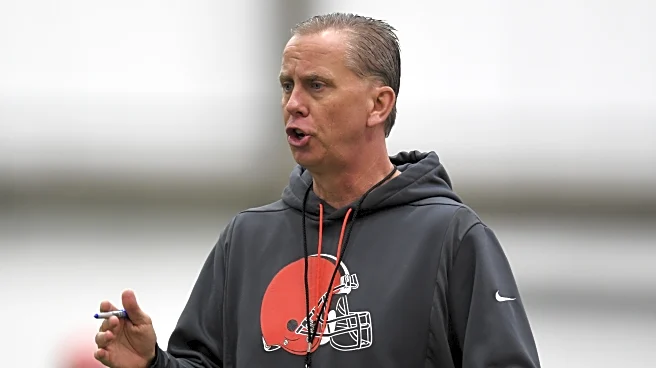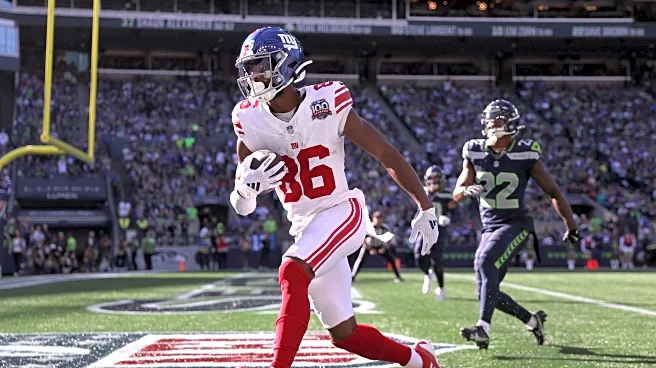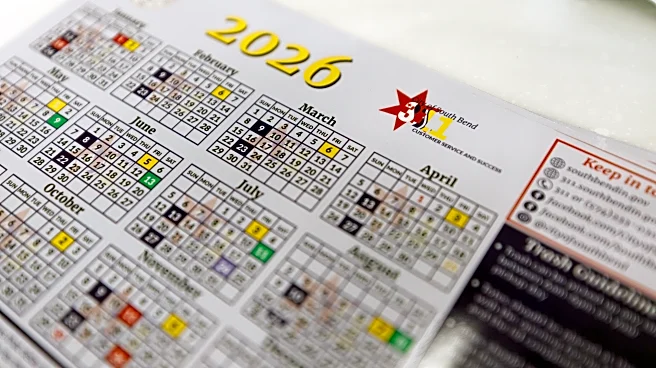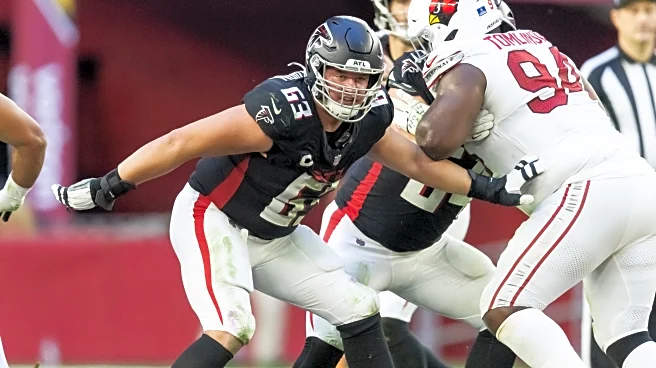What's Happening?
Several major restaurant chains, including McDonald's, Chipotle, Sweetgreen, and Wingstop, have reported a decline in consumer spending, particularly among low-income customers. McDonald's CEO Christopher Kempczinski noted a significant drop in traffic
from low-income customers, while Chipotle's same-store sales are expected to decline in 2025, reversing previous growth forecasts. Sweetgreen reported a 10% decline in same-store sales over the last quarter, with notable decreases in key regions like the Northeast and Los Angeles. Wingstop also observed sales declines in areas predominantly populated by low-income consumers. These developments come as inflation worsens and hiring slows, impacting consumer sentiment and spending habits.
Why It's Important?
The decline in consumer spending among low-income groups is significant because consumer spending constitutes about two-thirds of U.S. economic activity. The reported decrease in spending could signal broader economic challenges, as inflation and economic uncertainty continue to affect consumer behavior. Companies like McDonald's and Chipotle are experiencing shifts in their customer base, with higher-income consumers maintaining spending levels while lower-income groups cut back. This trend could lead to adjustments in business strategies and pricing models as companies attempt to navigate the changing economic landscape. The impact on restaurant chains may also reflect wider economic pressures that could affect other sectors reliant on consumer spending.
What's Next?
Restaurant chains may need to adapt their strategies to address the changing consumer landscape. This could involve adjusting pricing models, offering promotions, or targeting different demographic groups to maintain revenue levels. Companies might also explore cost-cutting measures or operational efficiencies to offset declining sales. Additionally, the broader economic implications could prompt policymakers to consider measures to support consumer spending and address inflationary pressures. The duration and extent of these economic challenges remain uncertain, and businesses will likely continue to monitor consumer behavior closely to inform their strategies.
Beyond the Headlines
The decline in consumer spending among low-income groups raises questions about economic inequality and the ability of different demographic groups to weather economic challenges. As inflation continues to impact purchasing power, businesses and policymakers may need to consider long-term solutions to support vulnerable populations. The situation also highlights the importance of economic indicators and consumer sentiment in shaping business strategies and economic policy. The evolving consumer landscape could lead to shifts in market dynamics and influence future economic growth patterns.















